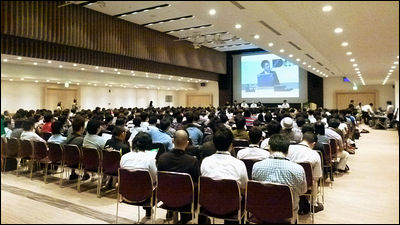What happened in Turkey, which suddenly jumped into the 'Silicon Valley of the game industry'?

As of March 2021, six of the top 10 games on the US App Store were produced in Turkish studios. Istanbul, the capital of Turkey, has been positioned as a 'silicon valley in the mobile game industry' in recent years, but the reason why Turkey was able to prosper so much in the mobile game industry is because of Turkey's history and economy. The news site
How Istanbul became the Silicon Valley of the mobile gaming industry --Rest of World
https://restofworld.org/2021/turkey-gaming-peak/
In Istanbul, the capital of Turkey, many offices of mobile game development studios are lined up to show the prosperity of the mobile game industry. In 2020, American social game developer Zynga acquired Turkish game company Peak for 1.8 billion dollars (about 200 billion yen), and Dream Games, which was established on June 30, 2021 Just four months after the release of its first game, Royal Match, it has become a unicorn with a valuation of over $ 1 billion, and its momentum continues to grow.
Turkey's economic collapse and currency crisis are behind Turkey's major movement in the mobile game industry. In an era when the economy was hit hard, the development of casual games is thought to have become a kind of American dream, or a means to move from the middle class to the upper class.
In fact, the game industry was originally active in Turkey. In Turkey men there is a culture of 'kıraathane' who gather in such as coffee shops, kıraathane in backgammon and Bejiku thing with, the and Domino is performed was common.

Although interest in games increased worldwide in the 1980s, the number of kıraathane facilities equipped with coin-operated game consoles increased because most people in Turkey could not purchase home video game consoles. In 2001, coding teacher İhsan Karagülle opened an online gaming salon, Hakkarim.net, which allowed many to connect with remote people from their homes and kıraathane. I did. Hakkarim.net became widespread with the spread of the Internet, but it declined with the popularity of mobile games.
At the same time, in 2001, the portal 'Mynet', which was popular as the Turkish version of Yahoo !, realized that 'many Turkish people spend on online chat and board games' and opened a free game platform. .. Mynet's free game platform, which started in the midst of a serious financial crisis, became a big hit and became the second most visited website after Google and Facebook, with 12 million monthly active users by 2012.
In this context, Buğra Koç launched the mobile game company 'Peak' in 2010. Believing that the key to Mynet's success lies in the
The man in the image below is Mr. Koç.

Koç, who had no knowledge of building F2P games, decided to work with Sidar Şahin, who had been doing in-game purchases and research on virtual products in China for a year. And the selling point of Peak is 'reliability', and even though 99% of users pay nothing, it provides 24/7 customer service and stands like 'IBM in the gaming platform'. I heard that I got it. When Peak released the agricultural simulation game 'Komşu Çiftlik' in 2010, more than 1 million people followed its Facebook page.
“Our strength was the social nature of the game. The animation and technology weren't perfect, but they met the needs of people at that time,” says Koç. In fact, at the same time, Peak was a huge success, with many developers struggling to monetize.
After that, Peak released multiple games centered on casual games. By the second half of 2010, Peak had increased its workforce to 100, and it was also noted that it was different from the traditional Turkish work environment. At Peak, after acknowledging the independence of each developer, development proceeded
Turkey has developed the game industry in this way, but on the other hand, it is pointed out that 'although the casual game industry is prosperous at the moment, it is based on'ultra-fast consumption'and is unsustainable.' I have. Developers can make a lot of money if they can make a hit game, but learning how to make a game in earnest requires a lot of money, and most developers make a lot of cheap games. Is required. Especially in the casual game industry, where new releases are required once a week, new ideas are constantly being sought and an exploitation structure is being created. This is also a concern for Mr. Koç mentioned above.

Investment in Turkish game studios is still ongoing. One reason is that the epidemic of the new coronavirus infection (COVID-19) has restricted traditional entertainment venues such as movie theaters and cafeterias, favoring the mobile gaming industry.
However, keeping in mind that mobile game development is in a state of instability, the F2P development boom may decline, just as kıraathane and Hakkarim.net declined, Rest of World. Points out.
Related Posts:
in Game, Posted by darkhorse_log







